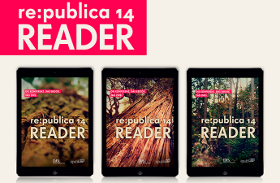Kurzthese:
Beschreibung:
The web makes it possible to not just disseminate the results of research more widely, but in the case of history also to widen access both to these results, and the sources they are based on, old enough for having fallen into public domain and by now massively digitised. This makes it possible to work with these sources directly, and thus do historical research, for a much wider range of people than before. On the other hand, the nature of the presentation of both research results and sources on the web makes it possible to combine the two and in some ways merge them — to put the analysis and the data it is based on so close together that everybody reading the one also has access to the other, and thus the possibility to control and correct the conclusions.
These two factors together could fundamentally change the character of historical knowledge. Historical knowledge is, after all, the basis of political action, as it determines what we perceive people and society to be capable of.
Thus the question of who writes history, and what the character of this knowledge is perceived to be, is anything but academic. The saying of "writing history" which implies that it is enough to do something great or important is a lie. Past and ongoing enterprises to 'rewrite' history, or in many cases write those histories for the first time, such as the histories of women and people of color, testify to this. So why is it that the opportunities digitisation of sources and digital publishing offer seem to change the history that is written so little? Why is it that history is still written by mostly the same kind of people in mostly the same way as 20 years ago? Is it because not access to information is the main barrier, but rather education and time (and the money to buy those)? Or is that perception itself wrong, misguided by a fixation on the classic spheres of academic historical discourse, and thus overlooking the new places that the writing of history is moving to?
In this talk I look closely at what the conditions for a democratization of the writing of history are, in addition to the development of modern media already happening, and think about what new forms historical knowledge is taking, and how that changes its character and meaning. Or, in other words, how the principle of Wikipedia entry history pages at the same time expands and explodes the concept of the peer-reviewed journal article.


